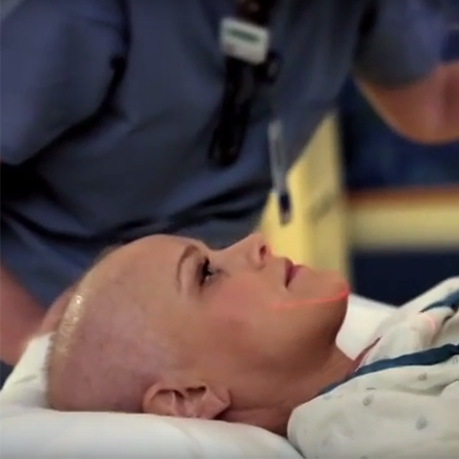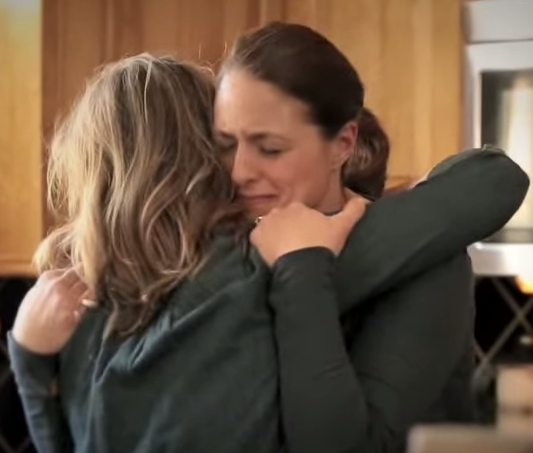 “Sometimes I think this is worse for my mom than me. She sits in the parking lot in her car for long periods of time, waiting for me and worrying,” admits Kaitlyn*, who is spending that time in her oncology clinic receiving treatments – alone – while her mom waits in her car.
“Sometimes I think this is worse for my mom than me. She sits in the parking lot in her car for long periods of time, waiting for me and worrying,” admits Kaitlyn*, who is spending that time in her oncology clinic receiving treatments – alone – while her mom waits in her car.
COVID-19 has done that to many who find themselves caring for someone going through cancer treatment. In the silence and isolation of the chemotherapy chair, Kaitlyn’s mom, Cathy*, finds herself in the same situation, but in the driver’s seat of her car, parked in the lot outside the treatment center.
This waiting does give Cathy plenty of time to worry, as Kaitlyn points out above. “I worry about the effectiveness of the treatments and whether or not Kaitlyn will lead a long and fulfilling life,” Cathy begins. “Getting diagnosed with breast cancer (in her 20’s) was devastating. Your world is turned upside down,” she exclaims!
And due to COVID-19 restrictions at clinics and hospitals, “Kaitlyn has to walk in (to the appointments) herself, hear all of the news herself,”

Cathy laments. “That has probably been the biggest heartache for us as caregivers – that we really can’t be right there with her.”
During Kaitlyn’s chemotherapy appointments, Cathy tries to fill her time with something other than Google searches about the disease and treatments. “Some days I sit in my car and say a rosary or read the paper.” Cathy continues matter-of-factly, “Sometimes I do my job from my car. Some days I run to my office. Sometimes friends call me and check in while I sit there.”
And sometimes, Cathy is able to participate in her daughter’s appointments though speakerphone, but it just isn’t the same as being in the room, ready to hold Kaitlyn’s hand, give her a hug, or be a shoulder to cry on. After appointments that Cathy isn’t able to attend virtually, “Katilyn and I will chat about what was said, rehashing it to figure out what information she would still want to have, then writing it down so she can ask about it next time.”
As Kaitlyn shared in the previous blog, she received a COVID-19 diagnosis days after her breast cancer diagnosis. “It meant delaying the start of her treatment, which I had to wonder . . . does a week here or a week there make a difference in your battle against breast cancer?” Cathy asks. “We heard horror stories of people becoming very ill with COVID-19, and so the extent of what toll it would take on her was also a great deal of concern for us.”
To make sure that Kaitlyn doesn’t get exposed to COVID-19 while going through treatment, “We have been ultra-careful. Hopefully Kaitlyn can’t get COVID-19 again, but nobody knows with this crazy disease,” Cathy says incredulously. “Nobody wants myself or my husband to get sick because we are caring for Kaitlyn. Just the added stress of wanting to stay healthy can be kind of crazy.”
 COVID chaos aside, the most challenging part of being a caregiver for her daughter is dealing with the rollercoaster of emotions—both hers and her daughter’s. “Some days Kaitlyn is just terribly sad,” Cathy chokes up in talking about this. “I think you have to give that person permission to be sad, to cry, and to agree that this sucks.” She says mournfully, “I never know when I pick up the phone if it’s going to be a tearful call.”
COVID chaos aside, the most challenging part of being a caregiver for her daughter is dealing with the rollercoaster of emotions—both hers and her daughter’s. “Some days Kaitlyn is just terribly sad,” Cathy chokes up in talking about this. “I think you have to give that person permission to be sad, to cry, and to agree that this sucks.” She says mournfully, “I never know when I pick up the phone if it’s going to be a tearful call.”
And Cathy is incredibly grateful for her friends that have allowed her to call them and be a shoulder for her to cry on. “I have a couple of good friends that I get together with on a regular basis, cry with once in a while,” she divulges, her voice shaking with emotion. “We meet—practicing social distancing—golf, get outside, and try to enjoy summer. Their friendship has been very important.”
Her advice to other caregivers? “Sometimes, you just have to get through the day. Just that one small goal that you can get your mind around.” While the thought of multiple rounds of chemotherapy, surgeries, radiation, recovery, and PET scans can be overwhelming Cathy reminds caregivers to focus on one thought: “You just have to get through this day.”
Also, Cathy tells caregivers to “give yourself permission to just say no to things. Sometimes it gets a little overwhelming, especially just after a cancer diagnosis. Everybody wants to do something and we certainly appreciate it all, but sometimes I felt like I just had to say, ‘Nope, you know what, we’re good. We’re just going to hunker down.’.”
And that, Cathy thinks, is “the silver lining with this whole quarantine business: we’ve shrunken our world, which has been OK.” I think we can all understand why Cathy feels this way!
*Name has been changed to protect privacy.
A tremendous thank you to Cathy for sharing her caregiving experience during the pandemic. We don’t often share the stories of caregivers and are so appreciative that Cathy was willing to be honest and open with her thoughts and feelings, despite the sadness they provoked.
Written by Amy Tix, Firefly Staffer and breast cancer survivor, whose fingernails would be chewed off and steering wheel picked clean of it’s faux leather detail would she be stuck in a car, worrying and waiting for her daughter to come out of a doctor appointment or treatment for breast cancer that she had to go to alone!
